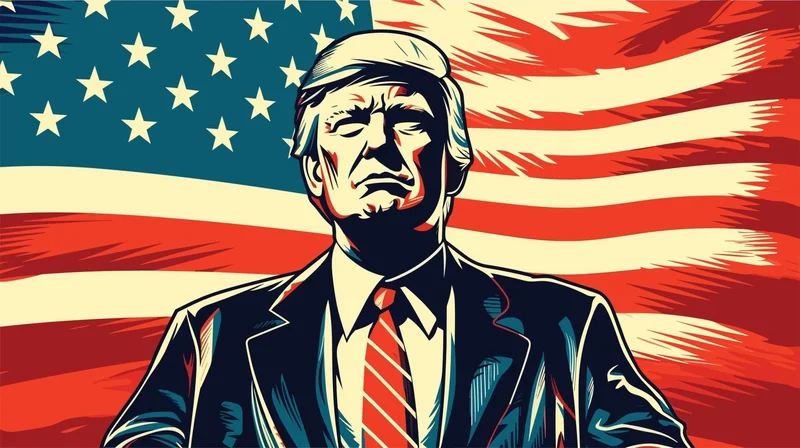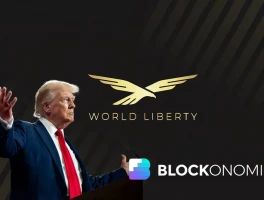Trump's Crypto Pardon: A Glitch in the System, or a Glimpse of a Decentralized Future?
Okay, folks, let's dive into the deep end. I know, I know, the headlines are screaming "corruption," "quid pro quo," and all sorts of other political nastiness. Trump pardons crypto billionaire! But as a tech optimist, I can't help but wonder if we're missing the forest for the trees here. What if this isn't just about shady deals, but a sign of something much bigger – a fundamental shift in how power and finance operate in the digital age?
Let's lay out the facts, as we know them. Changpeng Zhao, the founder of Binance, gets a pardon from Trump after his company allegedly helps the Trump family's crypto venture, World Liberty Financial (WLF). There's even talk of Emirati money flowing into WLF around the same time Trump is negotiating deals with the UAE. It looks bad, I get it. Elizabeth Oyer, former head of pardons at the Justice Department, calls it "corruption," and Harvard's Lawrence Lessig warns of a "culture of giving and exchanging." But is that the whole story?
The Decentralization of Influence
Here's where I think things get interesting. We are seeing the old guard struggle to comprehend the new world. For decades, influence was centralized in the hands of governments and big banks. But crypto promises to change all that. It's about decentralization, about putting power back in the hands of individuals. Now, does that mean it's immune to corruption? Absolutely not. But it does mean that the old rules, the old power structures, are being challenged.
Imagine a world where financial transactions are transparent, where anyone can see where the money is flowing. That's the promise of blockchain technology. And sure, there will be bad actors who try to exploit the system, but the very nature of the system makes it harder to hide. The old ways of backroom deals and secret handshakes are being exposed to the light.
Now, I'm not saying that Trump's pardon of Zhao is a victory for decentralization. But it does highlight the growing importance of crypto in the political landscape. It's a wake-up call for policymakers, a sign that they need to understand this technology and its implications. The question is, can they adapt, or will they cling to the old ways of control?

The 60 Minutes piece is full of skepticism, pointing out the potential conflicts of interest. Austin Campbell, a former banker, notes that World Liberty Financial was "largely unknown" before Binance got involved. Lawrence Lessig asks, "Are the reasons helping America, or are the reasons helping them privately?" These are valid concerns, no doubt. But they also miss the bigger picture. What if this is just the beginning of a new era of financial innovation, one where traditional power structures are disrupted and challenged?
And let's be real, the old system isn't exactly squeaky clean either. Remember the 2008 financial crisis? The bailouts for big banks? The lack of accountability? The traditional financial system is riddled with its own forms of corruption and self-dealing. Crypto, for all its flaws, offers a potential alternative, a way to build a more transparent and accountable financial system.
One source told 60 Minutes that Zhao "now controls whether [World Liberty] dies or lives. He has a sword over their head." But what if that sword is also a catalyst for innovation? What if Zhao's involvement helps WLF become a major player in the crypto space, creating new jobs and opportunities? It's a risk, sure, but it's also a potential reward.
When I think of the potential of this, I honestly get chills. It's the kind of breakthrough that reminds me why I got into this field in the first place. To see the world changing, to be a part of it, that's what it's all about.
Of course, we need to be mindful of the ethical considerations. As crypto becomes more mainstream, we need to ensure that it's used for good, not for ill. We need to protect consumers from scams and fraud. And we need to address the environmental impact of crypto mining. But these are challenges we can overcome. The potential benefits of a decentralized financial system are too great to ignore.
So, Are We Witnessing a Revolution?
Is Trump's pardon a sign of corruption? Maybe. But it's also a sign that crypto is here to stay. It's a disruptive force that's challenging the old order and creating new opportunities. It's a wild west, sure, but it's also a frontier of innovation. And I, for one, am excited to see where it leads us.

